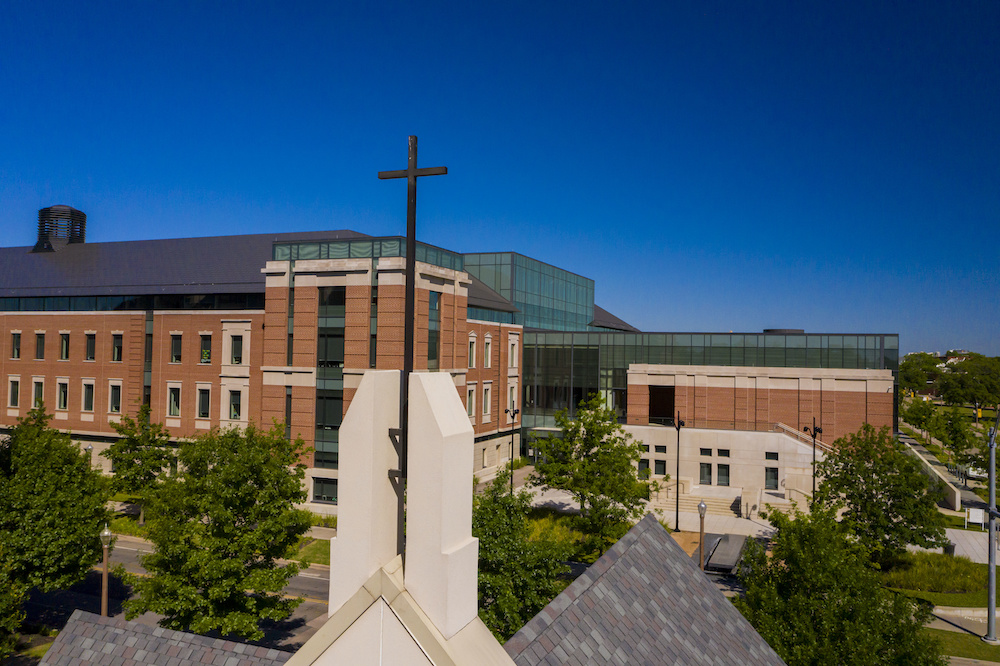Top-Tier Faith Research

No matter the discipline, Baylor’s faith foundation infuses research across the spectrum—science, engineering, business and more. Many Baylor researchers also focus their top-tier research on faith itself, leading significant projects that address faith’s impact on human flourishing, community health, individual character and more.
From institutes to projects to individual faculty members, discover how Baylor research shapes our global understanding of faith.
Baylor ISR: Institute for the Studies of Religion With distinguished researchers in religion, history, sociology, economics, epidemiology and more, Baylor ISR is a collection of scholars who focus rigorous scholarly attention on religious faith. Among its many programs are the Global Flourishing Study, Program on Prosocial Behavior and more. Founded in 2004, it is led by Byron Johnson, Distinguished Professor of the Social Sciences.
Baylor Religion Survey Since 2005, Baylor leads biannual national surveys on the religious beliefs, values and behaviors of Americans. Led by Paul Froese, professor of sociology and a Baylor ISR research fellow, the survey has investigated topics like religion and mental health, politics or technology, and has been covered by organizations like ABC News, the Washington Post and Scientific American.
Byron Johnson, Baylor ISR Director and Distinguished Professor of the Social Sciences, is a globally recognized research leader on the role of religion in public life. His projects have examined topics of crime and incarceration, homelessness and more, and his most recent research endeavor represents a crowning achievement. The Global Flourishing Study is the largest study of its kind of the causes and factors that lead to human flourishing—a $43 million, five-year longitudinal study of approximately 240,000 people around the world.
Stephanie Boddie, assistant professor of church and family ministries, holds a joint position in Baylor’s Diana R. Garland School of Social Work, School of Education, and George W. Truett Theological Seminary. Her research examines faith-based social innovation and entrepreneurship, along with related topics like race, social services, food insecurity and more. A professor at leading institutions like Washington University in St. Louis and a senior researcher at the Pew Research Center’s Forum on Religion and Public Life prior to coming to Baylor, much of her research focus at Baylor has been through the lens of the black church, with a focus on the social and entrepreneurial approaches these institutions have used to address disparities in wealth, health and food insecurity in their communities.
Carlos Cardoza-Orlandi, The Frederick E. Roach Professor of World Christianity in Baylor’s Department of Religion, seeks answers to a multifaceted question: what happens when Christianity enters a new market? Throughout history, Christians have shared the gospel around the world, and the way people receive that message is inevitably informed by their own customs and culture. Dr. Cardoza examines interpretations of the Christian movement and shares trends that shape the transmission of the faith across the globe.
Sarah Schnitker, associate professor of psychology, bridges her own discipline with questions related to faith, virtue formation, character development and more. She has led interdisciplinary teams earning millions in grant funding; two recent endeavors include a project to equip theologians to incorporate psychological sciences into their work, and an examination of the role of virtue formation in both religious and secular higher education environments.
These are just a few of the many Baylor professors whose scientific approaches to faith questions illuminate the role of faith around the world—a natural fit for a preeminent Christian research university.